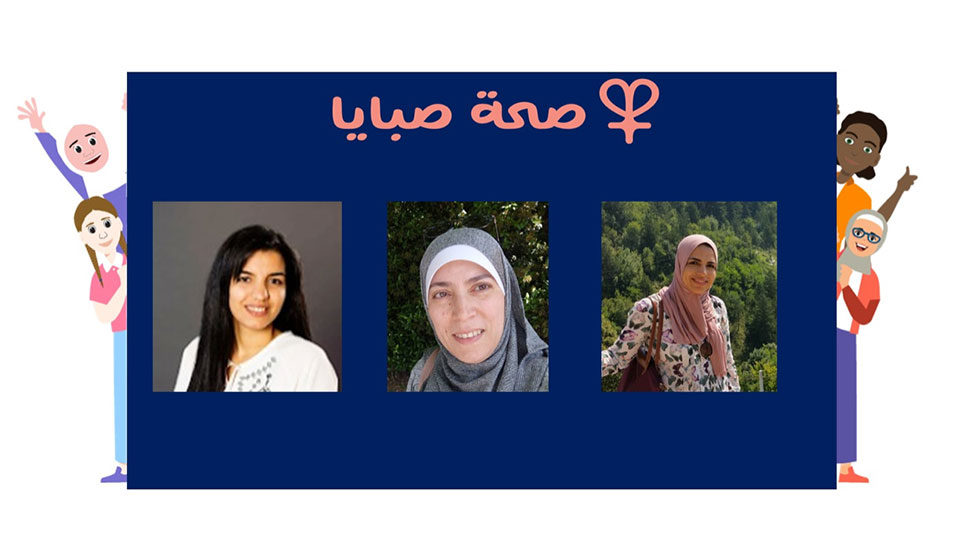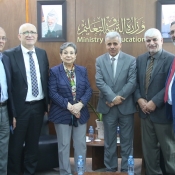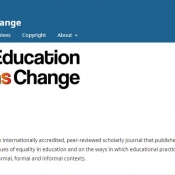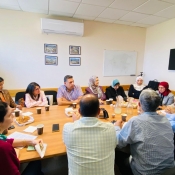Community health institute launches online platform to address health needs of adolescent girls in Palestinian refugee camps
The Institute of Community and Public Health (ICPH) at Birzeit University has recently launched an interactive online platform that seeks to improve the health and healthcare access of adolescent girls in Palestinian refugee camps in the West Bank and Jordan.
Initially, the project team, led by Dr. Weeam Hammoudeh and Dr. Rita Giacaman (co-principal investigators) at ICPH, planned to work with UNRWA departments to put together an in-person pilot intervention aimed at improving the health and health behaviors of girls between the ages of 12 and 18, with the cooperation of local schools and health and community centers.
However, as the COVID-19 pandemic progressed, the prospects for in-person activities became more unlikely. The project team began exploring possibilities to shift the intervention online during the summer of 2020, and subsequently put together a full team to work on the development and design of a virtual platform and its content.
The platform is one of the first Arabic-language virtual programs specifically designed to meet the needs of adolescent girls based on their own experiences and testimonies. The platform focuses on four main health dimensions that were identified as priority areas during the research phase: nutrition, menstruation and puberty, personal hygiene, and mental health.
The content published on the platform includes illustrated stories and comics inspired by the fieldwork carried out earlier in the program, in addition to interactive games and resources. The platform will also host ten live weekly discussion sessions on YouTube. The discussions, which will take place every Saturday, will allow girls to pose questions and comments to specialists and receive feedback publicly and privately. Recordings will also be made available on the platform such that participants can react to the content and present their comments or concerns at their convenience.
The research project that gave rise to the platform, supported by the International Development Research Centre, began with a qualitative study consisting of 39 in-depth interviews and 24 focus group discussions with over 200 adolescent girls living in Palestinian refugee camps in the West Bank and Jordan. The team carried out field visits to all 29 Palestinian refugee camps in the West Bank and Jordan in order to collect data and better understand the contexts in which young and adolescent girls were living as well as the nature of the services provided to them.
In addition to interviews with the girls, the research team also conducted meetings and interviews with service providers and various key stakeholders in the visited refugee camps, including staff from health and youth centers, schools, and other community organizations.
Following the qualitative phase, the team conducted a household survey with 3000 girls aged 15–18 in the 29 camps. Data related to nutrition, menstruation, hygiene, and mental health was collected in the survey alongside background information on the girls’ households.
Throughout the various research and data collection phases, the ICPH team carried out its tasks in cooperation with UNRWA's field offices in Jordan and the West Bank, the Executive Office for Refugee Affairs, heads of camp community-based committees in the West Bank, the Department for Refugee Affairs, and camp services committee in Jordan.
Content and technical development for the platform was carried out by a diverse team from Birzeit University. The research team included Dr. Rita Giacaman, Dr. Weeam Hammoudeh, Rula Ghandour, Reem Ladadwa, and Deema Mas’oud, with support from Dr. Abdullatif Husseini, Rawan Kafri, and Widad Zeidan from the Institute of Community and Public Health.
The platform was developed by recent university computer engineering graduates Aseel Khader and Yousif Shaheen under the supervision of Dr. Hanna Bullata. Khalid Ladadweh and Loor Amin, second-year design majors in the Faculty of Art, Music and Design, worked with the team to design the platform's content, including the logo, key avatars on the platform, and illustrated materials. Waleed Aqel, Tareq Daghamin, and Salam Abughosh provided technical support for the project.
The platform, which can be accessed at sabayahealth.birzeit.edu, is currently fully available to girls taking part in the pilot phase. It will be expanded and made accessible to all Arabic-speaking adolescent girls in the near future.







